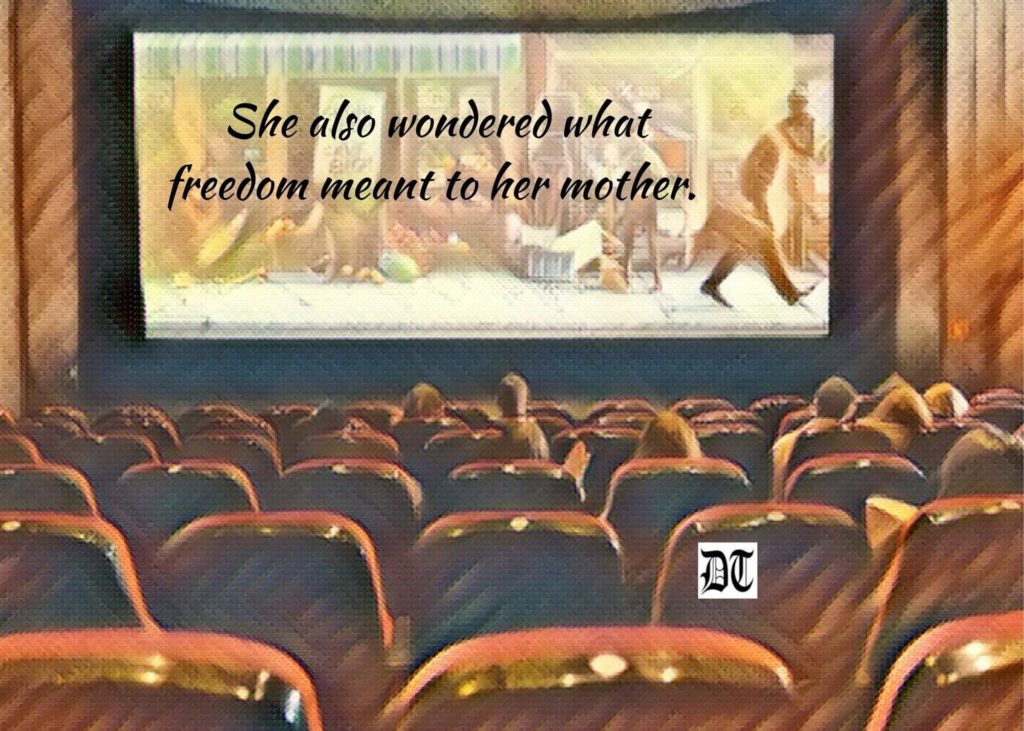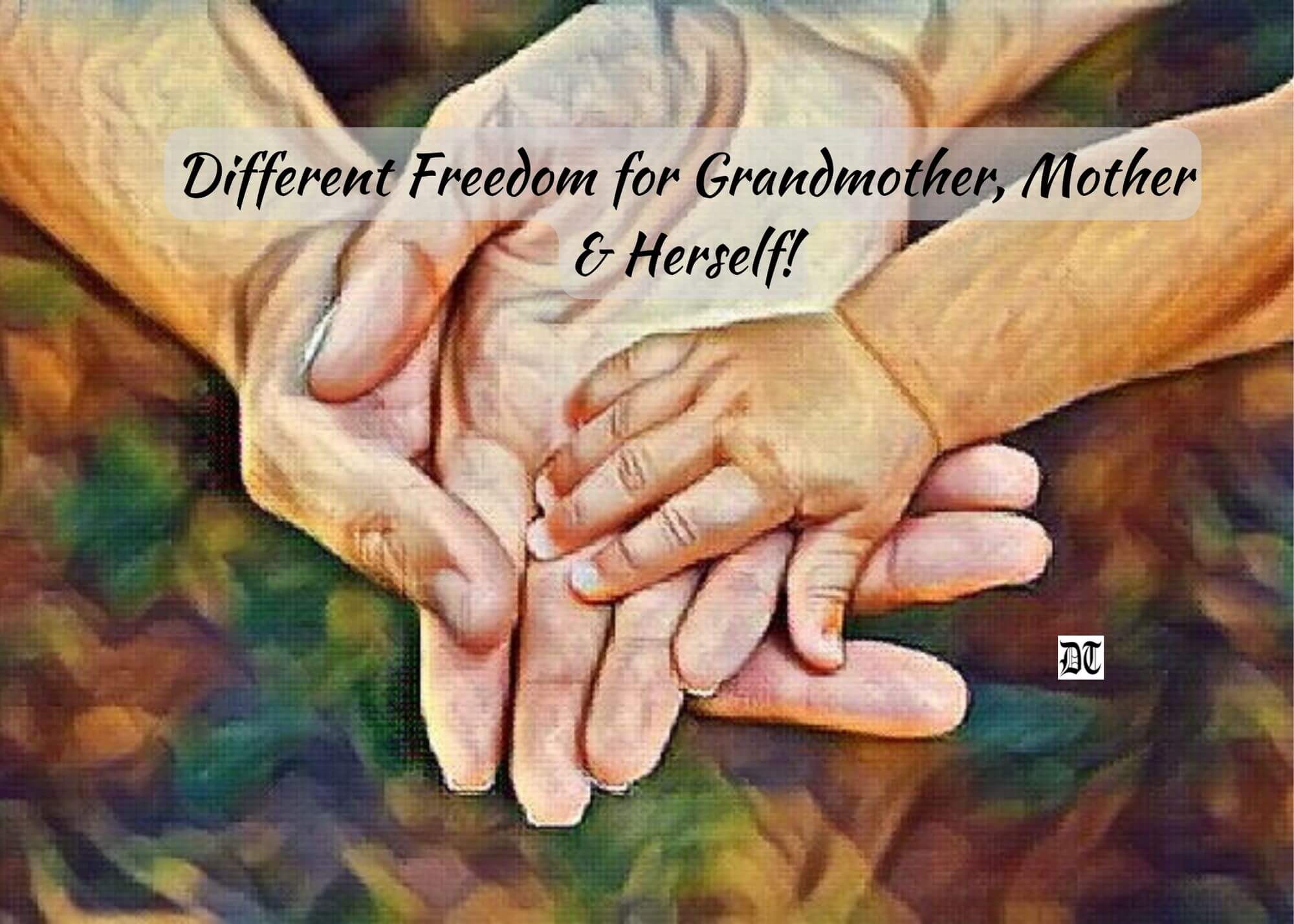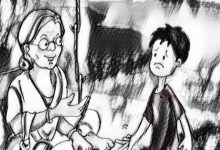In an inward-looking, soul-searching query, a modern woman explores what freedom meant to her three generations – grandmother, mother, and herself. Sandhya seeks to know, exclusively for Different Truths.
The early morning walks were a blessing that she gave to herself. The pale sunlight penetrating shyly from the thick bushes and playing hide and seek with her was something she never failed to miss. She loved her walks in the lone woods. The tall trees and the winding path gave her a sense of freedom. A freedom from the everyday mundane life, freedom from the hustle and bustle of the usual cycle, freedom of having done something alone. And freedom of having lived her life on her own terms even though for a short while.
The rest of the day she lived her life for others. She walked with her thoughts – innumerable and unending, knowing very well that they will be buried with her one day as her mother’s thoughts got buried with her.
Thoughts are very personal. And she wondered whether poets and writers express every thought…
Thoughts are very personal. And she wondered whether poets and writers express every thought, in and out, or did they have their shares of secrets, hidden within the closest – a chamber that tucked in the darkest ones. Secret of perhaps the first illegitimate love or the unforgettable story of horror and abuse.
Thoughts kept on floating throughout her walk like the dark clouds simmering in the dim vanquishing sunlight. One thought led to the other, some wrecked her veins. Some tore her soul apart. Some made her smile.
Her thoughts today morning tried to entangle the word freedom.
She wondered what freedom meant to her granny, married to a man in India at a tender age…
Her thoughts sometimes took her back to her childhood. She visualised her granny, a stout and plump lady with gold ornaments hanging all over her ears and nose. She wondered what freedom meant to her granny, married to a man in India at a tender age, from the one of the remotest villages of Nepal. She hardly had any wishes. Or maybe had no desire for any wishes. She lived her life for her husband and his family. And she died in a world that did not belong to her.
She was a lady with no demands and no complaints. The visit to the occasional fair and the acquisition of hair clips and ribbons was perhaps her sense of freedom. Her thoughts may have wandered to the valley, where she was born and raised. And freedom to her might have meant visiting her valley once before her death.
She also wondered what freedom meant to her mother.
She also wondered what freedom meant to her mother. Was it the occasional visits to theaters amidst a lot of hue and cry and objections from others? Or may be going out independently even to buy groceries and vegetables or for the occasional puja and birthday dresses for her children. She perhaps tasted freedom seeing them eat and wear the things she bought. Her mother, an independent lady, had her share of thoughts. Some she expressed and a lot many that she took along with her into oblivion.

Now, her thoughts wandered to what freedom exactly is. The concept of freedom to Indian ladies perhaps started with the queens, Sita and Urmila. The former was trying to free herself from the external forces inflicted upon her by the demon king Ravana. And the latter tried to liberate herself from her self-imposed restrictions on being away and apart from Laxman.
As for her, inhaling a deep, long breath down to her belly and being on her own for a few moments was … freedom.
As for her, inhaling a deep, long breath down to her belly and being on her own for a few moments was her sense of freedom. A modern lady, way ahead of her mother and grandmother. She had access to everything, yet freedom was at bay.
But what freedom meant to her or to all the women like her? Travelling the whole world alone and being completely on their own. Screaming their hearts out from the top of a mountain, being financially independent, being able to make decisions on their own, being able to go in and out of the house as per their wish, walking in the darkness, getting drunk, loving one’s own company. What does freedom mean to a woman? Instead of having everything a modern lady wishes for, she still complains about the lack of freedom.
… we all have our own independent definition of freedom.
Maybe because we all have our own independent definition of freedom.
As for her, freedom is a long walk along the unending roads in a misty morning.
Picture design by Anumita Roy, Different Truths





 By
By
 By
By
 By
By
 By
By